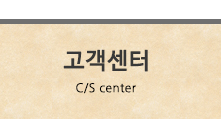10 Instagram Accounts On Pinterest To Follow About Auto Accident Compe…
페이지 정보
작성자 Hye 작성일24-05-26 13:34 댓글0건관련링크
본문
How to File an Auto Accident Lawsuit
If an insurance company's settlement offer does not cover the damages you suffered, you are able to file a lawsuit. The process begins when your lawyer lodges a legal claim.
Your lawyer will gather details from witnesses and experts. They will also look over medical and police records as well as reports. This is known as discovery.
Liability
After an accident, it's the responsibility of the party responsible to submit a claim of liability with their insurance company. The claim must be filed within the legal time frame set by the state where your car accident occurred. Insurance companies may be tempted to pay as little as is possible for legitimate claims, therefore it's crucial to take steps to safeguard yourself. Keep all relevant information such as photographs, witness statements and police reports, and other pertinent information, at the scene. Contacting your insurance company as soon as you can is a good idea so they can begin to process your claim and collect evidence from the scene.
In New York, the no-fault system will pay medical bills and up to 80% of your lost income, subject to policy limits. It also covers non-economic expenses like pain and suffering. You must prove that the other driver was negligent. The severity of your injuries impacts both the non-economic and economic damages you're entitled to.
Sometimes, cars are constructed or designed in a flawed manner. In these situations the lawyer could suggest suing the manufacturer as well as the driver responsible for the crash. You can sue the government entity that is responsible for road maintenance and construction if it has knowledge or auto accident lawsuit should have known about dangerous conditions on its roads. But, you cannot hold an individual employee liable in such a lawsuit.
Damages
There is no way to estimate the exact amount of damages, but it's contingent on the laws in your state as well as the severity of the injury. However it is best to get your medical bills and other expenses recorded by a professional and to include the estimated future losses.
When negotiations to negotiate compensation, a lawyer representing a plaintiff will look for auto accident lawsuit as much evidence as possible to back their client's claim. This includes eyewitness evidence, police reports and medical records. In some instances the attorney will seek information from the defendant and their lawyers in a process called discovery. Depositions may also be required, where your lawyer asks you questions under oath about the incident and your injuries.
Sometimes, both parties will reach a settlement before the trial. This is a common scenario in car accidents as both parties wish to save time and money on legal fees and avoid the stress of an upcoming trial. This can happen anytime during the case but is more likely to happen after the discovery process has been completed. It could also happen when one party has learned or disclosed crucial information that they believe makes it impossible for their opponent to win.
Medical bills
Medical expenses are often the biggest expense following a car crash. These bills can come from private healthcare providers, such as clinics and hospitals, or from government-based healthcare like Medicare and Medicaid. No matter where the medical bills come from, it is crucial that the victims have proper insurance to cover the expenses. Personal injury lawsuits can be brought by victims of car accidents to recover these expenses.
In some instances, auto accidents or health insurance will cover the expenses before the verdict is made or a settlement is agreed upon. This can help reduce the total amount of the settlement and prevent the victim from having to cover out-of-pocket costs.
However, the insurers who pay for these expenses might attempt to recover the amount they incurred from the victim via a process referred to as subrogation. It is therefore important to have an attorney on your side who understands this process and will fight hard for fair compensation.
Certain drivers have an additional form of auto insurance known as "medical payment" or "PIP." It covers medical bills without determining fault the incident. This coverage usually does not have a deductible, and is accessible to all injured car accident victims. Even this coverage has limitations and you should not be relying on it to pay all of your medical costs.
Settlements
A fair settlement should be able to cover your expenses, such as medical bills, property damage and lost wages. It must also include a amount to cover any long-term injuries or limitations, such as decreased mobility or suffering and pain. You should consult a seasoned attorney to obtain the maximum amount of compensation for your injuries and damage.
The process of settlement could take a few months or years depending on the situation. The length of time may vary from state to state and depends on the nature of your case.
After an in-depth investigation of the accident, we'll make a formal demand to the insurance company of the driver who was at fault. We will work with your insurance company to get an appropriate settlement offer.
If negotiations with the insurance company fail your lawyer will start an action against the responsible party in the court. The discovery phase is the formal exchange of information and evidence between the two parties. During this stage your attorney will request information from the defendant and their attorneys in the form of written questions (called interrogatories) as well as oral testimony in depositions.
Throughout the discovery phase and trial, your lawyer can file legal documents, also known as motions with the court, which the judge will read and rule on. If a party isn't satisfied with the outcome of the trial, they are able to appeal. This can extend the trial by a few months or even years.
If an insurance company's settlement offer does not cover the damages you suffered, you are able to file a lawsuit. The process begins when your lawyer lodges a legal claim.
Your lawyer will gather details from witnesses and experts. They will also look over medical and police records as well as reports. This is known as discovery.
Liability
After an accident, it's the responsibility of the party responsible to submit a claim of liability with their insurance company. The claim must be filed within the legal time frame set by the state where your car accident occurred. Insurance companies may be tempted to pay as little as is possible for legitimate claims, therefore it's crucial to take steps to safeguard yourself. Keep all relevant information such as photographs, witness statements and police reports, and other pertinent information, at the scene. Contacting your insurance company as soon as you can is a good idea so they can begin to process your claim and collect evidence from the scene.
In New York, the no-fault system will pay medical bills and up to 80% of your lost income, subject to policy limits. It also covers non-economic expenses like pain and suffering. You must prove that the other driver was negligent. The severity of your injuries impacts both the non-economic and economic damages you're entitled to.
Sometimes, cars are constructed or designed in a flawed manner. In these situations the lawyer could suggest suing the manufacturer as well as the driver responsible for the crash. You can sue the government entity that is responsible for road maintenance and construction if it has knowledge or auto accident lawsuit should have known about dangerous conditions on its roads. But, you cannot hold an individual employee liable in such a lawsuit.
Damages
There is no way to estimate the exact amount of damages, but it's contingent on the laws in your state as well as the severity of the injury. However it is best to get your medical bills and other expenses recorded by a professional and to include the estimated future losses.
When negotiations to negotiate compensation, a lawyer representing a plaintiff will look for auto accident lawsuit as much evidence as possible to back their client's claim. This includes eyewitness evidence, police reports and medical records. In some instances the attorney will seek information from the defendant and their lawyers in a process called discovery. Depositions may also be required, where your lawyer asks you questions under oath about the incident and your injuries.
Sometimes, both parties will reach a settlement before the trial. This is a common scenario in car accidents as both parties wish to save time and money on legal fees and avoid the stress of an upcoming trial. This can happen anytime during the case but is more likely to happen after the discovery process has been completed. It could also happen when one party has learned or disclosed crucial information that they believe makes it impossible for their opponent to win.
Medical bills
Medical expenses are often the biggest expense following a car crash. These bills can come from private healthcare providers, such as clinics and hospitals, or from government-based healthcare like Medicare and Medicaid. No matter where the medical bills come from, it is crucial that the victims have proper insurance to cover the expenses. Personal injury lawsuits can be brought by victims of car accidents to recover these expenses.
In some instances, auto accidents or health insurance will cover the expenses before the verdict is made or a settlement is agreed upon. This can help reduce the total amount of the settlement and prevent the victim from having to cover out-of-pocket costs.
However, the insurers who pay for these expenses might attempt to recover the amount they incurred from the victim via a process referred to as subrogation. It is therefore important to have an attorney on your side who understands this process and will fight hard for fair compensation.
Certain drivers have an additional form of auto insurance known as "medical payment" or "PIP." It covers medical bills without determining fault the incident. This coverage usually does not have a deductible, and is accessible to all injured car accident victims. Even this coverage has limitations and you should not be relying on it to pay all of your medical costs.
Settlements
A fair settlement should be able to cover your expenses, such as medical bills, property damage and lost wages. It must also include a amount to cover any long-term injuries or limitations, such as decreased mobility or suffering and pain. You should consult a seasoned attorney to obtain the maximum amount of compensation for your injuries and damage.
The process of settlement could take a few months or years depending on the situation. The length of time may vary from state to state and depends on the nature of your case.
After an in-depth investigation of the accident, we'll make a formal demand to the insurance company of the driver who was at fault. We will work with your insurance company to get an appropriate settlement offer.
If negotiations with the insurance company fail your lawyer will start an action against the responsible party in the court. The discovery phase is the formal exchange of information and evidence between the two parties. During this stage your attorney will request information from the defendant and their attorneys in the form of written questions (called interrogatories) as well as oral testimony in depositions.
Throughout the discovery phase and trial, your lawyer can file legal documents, also known as motions with the court, which the judge will read and rule on. If a party isn't satisfied with the outcome of the trial, they are able to appeal. This can extend the trial by a few months or even years.
댓글목록
등록된 댓글이 없습니다.








